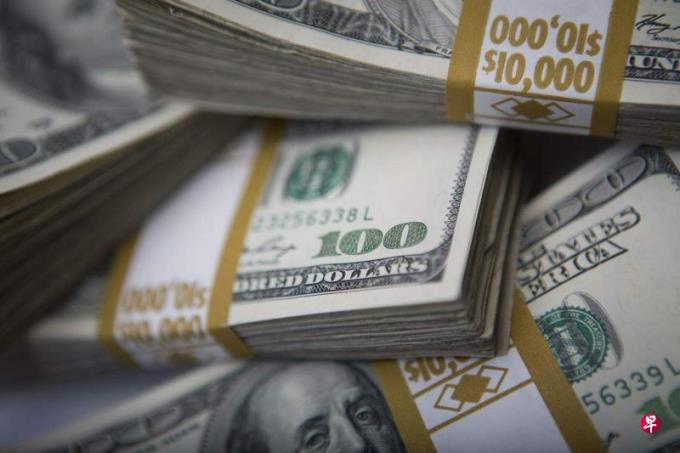
As the core inflation rate is still higher than the set target, the actual wage level after the inflation factor is still growing, and the strong evidence of rising productivity has not yet appeared, and the central bank governor will not cut interest rates soon.When they continue to try to influence the market by public declaration, they may have to admit that the market may see something they failed to see.If the data turns sharply, they may change the tone.
2023 has passed, but many known unknown events (especially in geopolitics) and may be unknown (UNKNOWNOWNOWNS) are still hidden in the near future, so it is more difficult for the world to match the world than ever.Economic prediction.It seems that the economy of investment institutions is expected to slow down in 2024, and many of them are confused about the fact that we have not had a serious decline.
The prospect of inflation constitutes a huge challenge.In the past few years, at least in the general sense, inflation will be seriously affected by uncertainty and unknown unknown factors.The fierce debate on the prospects of inflation is still continuing, and some business people who have high ethics and experienced experiences have doubted whether the central bank has controlled the inflation.The latest consumer price data of the euro zone, the United States and the United Kingdom provides some encouraging news for overall inflation trends; but core inflation (excluding large fluctuation energy and food prices) is still uneasy than the central bank's settingsDetermine target interest rates.
Of course, China's second largest economy does not seem to have this problem.On the contrary, China's recent consumer price data shows that it is shrinking, and the core consumer price index has decreased by 0.5%year -on -year in November last year.In the past, many analysts suspected that China was conducting shrinking pressure to other countries in the world -mainly through low -cost manufacturing exports and expanding foreign market share.If we are still in that era, some of the current inflation worries may be reduced, but those days seem to be gone.
The scale of various challenges (including shrinkage) facing the domestic economy of China is a major issue worthy of special discussion.In view of the fact that China's real estate market is facing many problems, and then referring to the relevant experience of other countries, we can think that China's dilemma will exist for a long time.But a less pessimistic view believes that because of those precedents and the long -term warnings of various critics, China's policy makers have fully realized these issues.
In addition to domestic domestic factors, we must also consider the trend of global commodity prices, because China's demand will still have a significant impact.In this regard, the news pointing to the end of 2024 is more encouraging than many people expected, indicating that the overall inflation rate of many countries may further decline in the next few months.Despite the chaotic situation in the Middle East and the outbreak of Ukraine, crude oil prices were still weak, which surprised many analysts.
In addition to the above factors, I also noticed the other three factors.First of all, the growth of the currency of many economies has weakened sharply. Combining with the current commodity price trend, this is quite reassuring.Although except for those most enthusiastic currencyists, no one has been claiming that currency supply has always been linked directly with inflation, but in the past few years, if currency growth has accelerated sharply, just like the United States at the end of 2020 and early 2021The same way, inflation will rise.
Secondly, it may be consistent with the trend of commodities and currencies. The recent inflation expectations data in major countries have made people feel relieved.In particular, the latest round of consumers' five -year prospects of the University of Michigan's University showed that people's inflation expectations dropped sharply from 3.2%in November last year to 2.8%in December last year, at least indicating that long -term inflation expectations have not continued to rise or "removed or" take offanchor".
In the end, it may be the most tricky issue, how the central banks will respond.The Federal Reserve Commission pointed out in the latest forward -looking guidance provided by the market that it may reduce interest rates by 75 basis points in 2024.Other central banks, especially the European Central Bank, are against the financial market's betting on interest rate cuts this year, but the market does not seem to realize this.As the core inflation rate is still higher than the set goals, the actual salary level after exclusion of inflation is still growing, and the strong evidence of rising productivity has not yet appeared, and the governor of the central bank will not cut interest rates soon.When they continue to try to influence the market by public declaration, they may have to admit that the market may see something they failed to see.If the data turns sharply, they may change the tone.
Wage growth is still a key variable.In some countries, especially the United Kingdom, wage growth has finally exceeded consumer price growth.Policy makers instinctively worry that this trend will cause textbook wages and price spirals to rise.However, if the actual wage growth has been re -balanced and the long -awaited productivity growth proof of the long -awaited growth of the financial return is reasonable, isn't it good?The new year always brings new hope.
Author Jim O’Neill is the former chairman of Goldman Sachs Asset Management Company and former Minister of Finance in the UK.
English Original: The Inflation Challenge in 2024
All rights reserved: Project syndicate, 2023.



